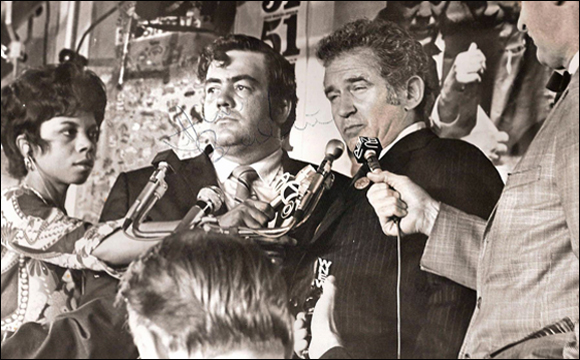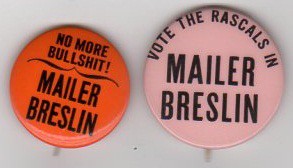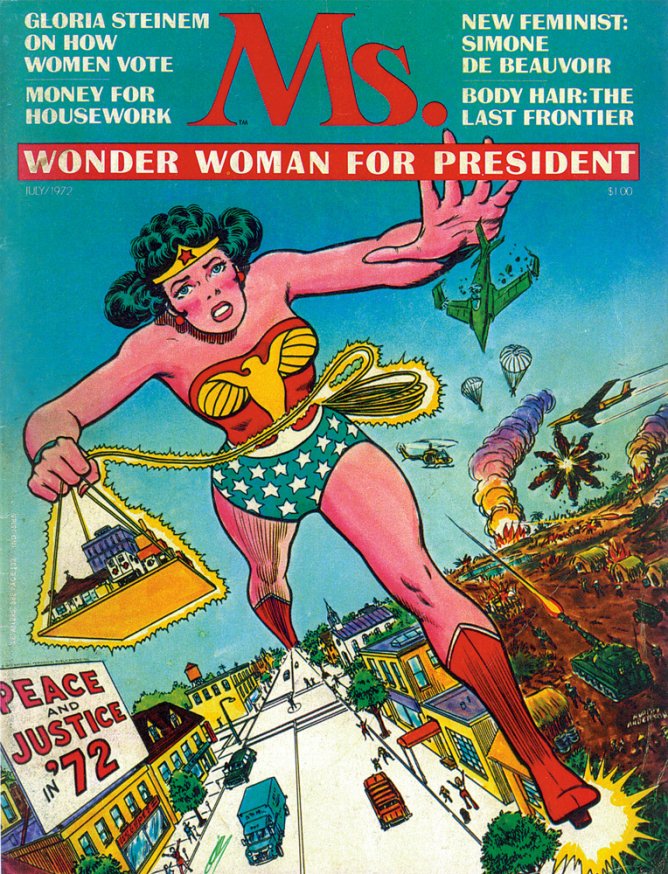When Gloria Steinem went undercover in 1963 serving cocktails in a Playboy club to pen the Show magazine article “A Bunny’s Tale,” the young writer viewed the Hefner-inspired job as analogous with the experience of all women of that age: They were servers, subordinates, the help.
Fifty-three years later, as Hillary Clinton is the betting favorite to serve in a different capacity, as President of the country, Steinem sits for a portrait by Samiha Shafy of Spiegel. Two excerpts from the smart piece follow, including a doozy of an anecdote about that dapper sexist Gay Talese.
She didn’t set out to be the leader of a movement and she was initially frightened by the prospect of appearing in public. When she had to speak to an audience, her mouth felt as though she had swallowed dust. “I felt I could be an observer, but not a participant,” she says. Had she been able to publish the texts that she wanted to write, that’s likely as far as her activism would have gone.
But that was back in the 1960s. Steinem recalls being a young journalist riding in a taxi with the famous scribes Gay Talese and Saul Bellow. All three were covering Bobby Kennedy’s Senate campaign and they were coming from an appearance by the candidate. Steinem sat squished between the two and she was just saying something about Kennedy when Talese suddenly bent over her toward Bellow and said: “You know how every year there’s a pretty girl who comes to New York and pretends to be a writer? Well, Gloria is this year’s pretty girl.”
Then the men began complaining about the traffic. Humiliated, Steinem fell silent. When she got out of the cab, she was furious — at herself because she hadn’t objected or at least slammed the door shut.•
Steinem says that all you really need to know about a society is how it treats its women. It is no accident, she says, that many modern-day terrorists grow up in an environment where men have control over women. “The most reliable indicator of whether or not there is violence inside a country, or whether it will use military violence against another country, is not poverty or access to natural resources or religion or even degree of democracy,” Steinem writes. “It’s violence against females. It normalizes all other violence.”
She argues that what differentiates democracies from authoritarian systems is the right of women to control their own bodies. That also means the freedom to end an unwanted pregnancy, an issue that continues to deeply divide the US in this election year of 2016. Just in March, Donald Trump said that abortions should be illegal and that women who have abortions should be punished.
In the first issue of the magazine Ms., which she founded in 1971, Steinem demanded that abortions be legalized. She printed the names of 52 women who admitted to having had the procedure in secret, often under life-threatening conditions. And she added her name to the list as well. Back when she was 22, she had gotten engaged. He was a good man, she says, but she didn’t want to get married, preferring instead to go to India on a study fellowship. On the way there, she realized that she was pregnant. In London, she found a doctor who agreed to help her under two conditions: that she never reveal his name and that she promise to make the best out of her life. She dedicated her recently published memoirs to the doctor.•




